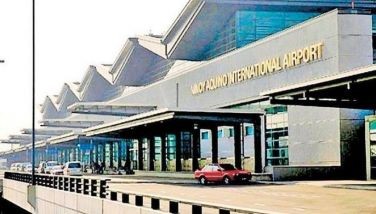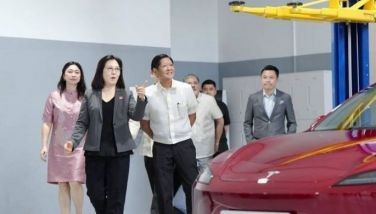Expert asks government to take second look at EVAT
October 19, 2005 | 12:00am
The country’s leading expert on the value-added tax system asked the government yesterday to take a second look at the expanded value-added tax (EVAT) law before implementing it.
Lawyer Victorino Mamalateo, professor at the UP College of Law and former Bureau of Internal Revenue (BIR) assistant commissioner, said he noted some imperfections in the law which "would only serve to undermine the growth of the Philippine economy, discourage new investments in small and medium scale enterprises, and promote inequity in the system."
"I am not generally condemning the VAT law, however, but I merely want to stress that these flawed and onerous provisions do not have any beneficial impact, and may, in fact, even be counter-productive to the government and society," he said.
Mamalateo said the EVAT law contains provisions that will result in either production inefficiency or a "cascading" effect.
He cited the provision on the 70-percent cap on the utilization of input VAT as against output.
"This provision increases the working capital requirements of the business since the taxpayer has to fund the remaining 30-percent output tax liability with cash, instead of input VAT credits," he said.
"Particularly impacted are low-margin industries, as the cap results in an additional ‘cost’ of business. The problem also becomes more exacerbated for capital-deficient firms because of the increase in working capital requirements," he said.
Mamalateo added that the discouraging effect of the cap is not only to have a "cascade" on the taxes at the various levels, but also dampens the investment climate since businessmen will look for more secure investments with lower investment costs than having to contend with the additional working capital requirements as a result of the cap.
The 70 percent limit, he says, also creates a distortion in the system and product inefficiency since there is no full utilization of input VAT credits.
It also results in an impairment of the input VAT credit as the same can only be refunded when a business closes shop, he said.
Another provision which could undermine economic growth is the 60-month amortization of input VAT on capital goods, Mamalateo said.
He explained that most capital goods like machineries and equipment for manufacturing companies require huge amounts of money, where funding to buy such goods are generally acquired through loans.
Amortizing the input on capital goods would actually result in the deferral of the use of input tax paid in advance to the government and increase the carrying cost.
Lawyer Victorino Mamalateo, professor at the UP College of Law and former Bureau of Internal Revenue (BIR) assistant commissioner, said he noted some imperfections in the law which "would only serve to undermine the growth of the Philippine economy, discourage new investments in small and medium scale enterprises, and promote inequity in the system."
"I am not generally condemning the VAT law, however, but I merely want to stress that these flawed and onerous provisions do not have any beneficial impact, and may, in fact, even be counter-productive to the government and society," he said.
Mamalateo said the EVAT law contains provisions that will result in either production inefficiency or a "cascading" effect.
He cited the provision on the 70-percent cap on the utilization of input VAT as against output.
"This provision increases the working capital requirements of the business since the taxpayer has to fund the remaining 30-percent output tax liability with cash, instead of input VAT credits," he said.
"Particularly impacted are low-margin industries, as the cap results in an additional ‘cost’ of business. The problem also becomes more exacerbated for capital-deficient firms because of the increase in working capital requirements," he said.
Mamalateo added that the discouraging effect of the cap is not only to have a "cascade" on the taxes at the various levels, but also dampens the investment climate since businessmen will look for more secure investments with lower investment costs than having to contend with the additional working capital requirements as a result of the cap.
The 70 percent limit, he says, also creates a distortion in the system and product inefficiency since there is no full utilization of input VAT credits.
It also results in an impairment of the input VAT credit as the same can only be refunded when a business closes shop, he said.
Another provision which could undermine economic growth is the 60-month amortization of input VAT on capital goods, Mamalateo said.
He explained that most capital goods like machineries and equipment for manufacturing companies require huge amounts of money, where funding to buy such goods are generally acquired through loans.
Amortizing the input on capital goods would actually result in the deferral of the use of input tax paid in advance to the government and increase the carrying cost.
BrandSpace Articles
<
>
- Latest
- Trending
Trending
Latest


























